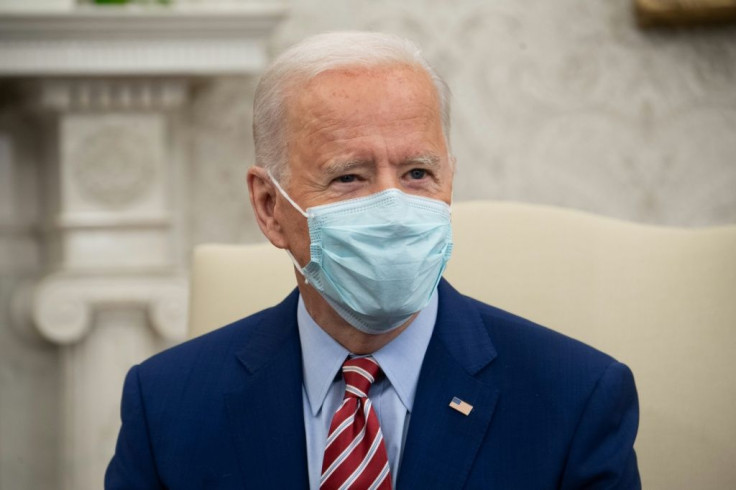Senate Passes Biden's $1.9 Trillion Coronavirus Relief Bill, Including $1,400 Stimulus Checks

KEY POINTS
- Bill includes $1400 stimulus checks, $300 a week jobless benefits
- Bill's passage will help get checks out the door to American "this month" — Biden
- House to vote on changes made in Senate on Tuesday
The Senate passed the $1.9 trillion coronavirus relief plan Saturday in a party-line, all-night "vote-a-rama." The bill, which was President Joe Biden's top legislative priority, was passed 50-49 after Sen. Dan Sullivan, R-Alaska, missed the vote.
The House will vote on the bill Tuesday to approve changes made in the Senate and it is expected to be on Biden's desk next week, House Majority Leader Steny Hoyer, D-Md., said in a statement.
The package includes $1,400 stimulus checks along with a slew of other measures like $300-per-week jobless benefits until Sept. 6, child allowance of up to $3,600 for one year, $350 billion for state aid, $34 billion to expand Affordable Care Act subsidies and $14 billion for vaccine distribution. The bill includes many progressive priorities, but not a minimum wage hike to $15 an hour. An amendment on the minimum wage hike offered by Senate Budget Committee Chairman Bernie Sanders, I-Vt. fell short of the 60 votes needed .
The path to the bill's passing was cleared after Democrats reached a deal Friday evening, following hours of negotiations, with Sen. Joe Manchin, D-W.Va., a moderate, on extending $300 a week unemployment payment through Sept. 6. The deal also makes the first $10,200 in unemployment benefits tax-free for households with an income of up to $150,000.
"By passing this plan, we'll have proved that this government, this democracy, can still work," Biden said. "It has to be done. It will improve people's lives." He added that the passage of the bill help get "checks out the door" to Americans "this month."
Democrats voted down a slew of Republican amendments that would have disrupted the agreements between progressives and moderates. The Senate was in session for more than 24 hours, well into Saturday. The previous coronavirus bills had all passed with bipartisan support.
© Copyright IBTimes 2024. All rights reserved.





















